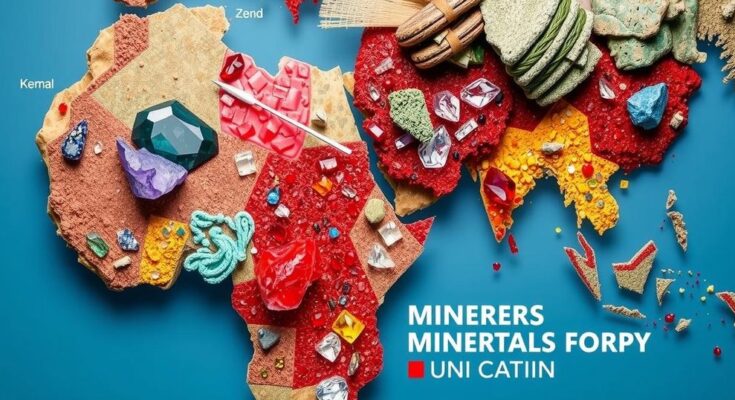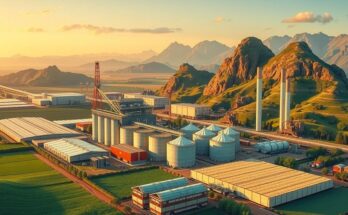A U.N. report reveals that rebels in eastern Congo exported over 150 metric tons of coltan to Rwanda, significantly contaminating the mineral supply chain in the Great Lakes Region. Following the occupation of Rubaya by the M23 movement, the rebels established control over mining operations and imposed taxes, raising alarms for technology manufacturers regarding conflict minerals in their supply chain.
Recent reports by U.N. experts indicate that rebel groups in eastern Democratic Republic of Congo illegally exported a minimum of 150 metric tons of coltan to Rwanda in the preceding year. This activity has led to the most significant contamination of the mineral supply chains in the Great Lakes Region to date. Following the occupation of the Rubaya area, a key mineral-rich zone, by the M23 movement, the rebels established a monopoly on coltan exports to Rwanda and imposed taxes on local trades, accumulating substantial revenue. Further complicating matters for technology manufacturers, who must ensure compliance with ethical sourcing practices, the situation necessitates comprehensive scrutiny of supply chains to avert the use of conflict minerals.
The Democratic Republic of Congo holds vast mineral resources critical for the global technology industry, notably coltan, which is essential for the production of smartphones and computers. However, the region is marred by conflict, particularly involving rebel groups like M23, which is allegedly supported by Rwanda. The ongoing violence and territorial control of these groups have exacerbated challenges in establishing a transparent and ethical trade in minerals, raising concerns about the influx of conflict minerals into international supply chains.
In conclusion, the recent U.N. report highlights the troubling intersection of conflict and commerce in Eastern Congo’s mineral markets. The activities of the M23 movement exemplify the ongoing challenges in curbing illicit exports and ensuring responsible sourcing in the technology sector. Further investigations are essential to unravel the complexities of this issue and safeguard international supply chains from the implications of conflict minerals.
Original Source: www.hindustantimes.com




